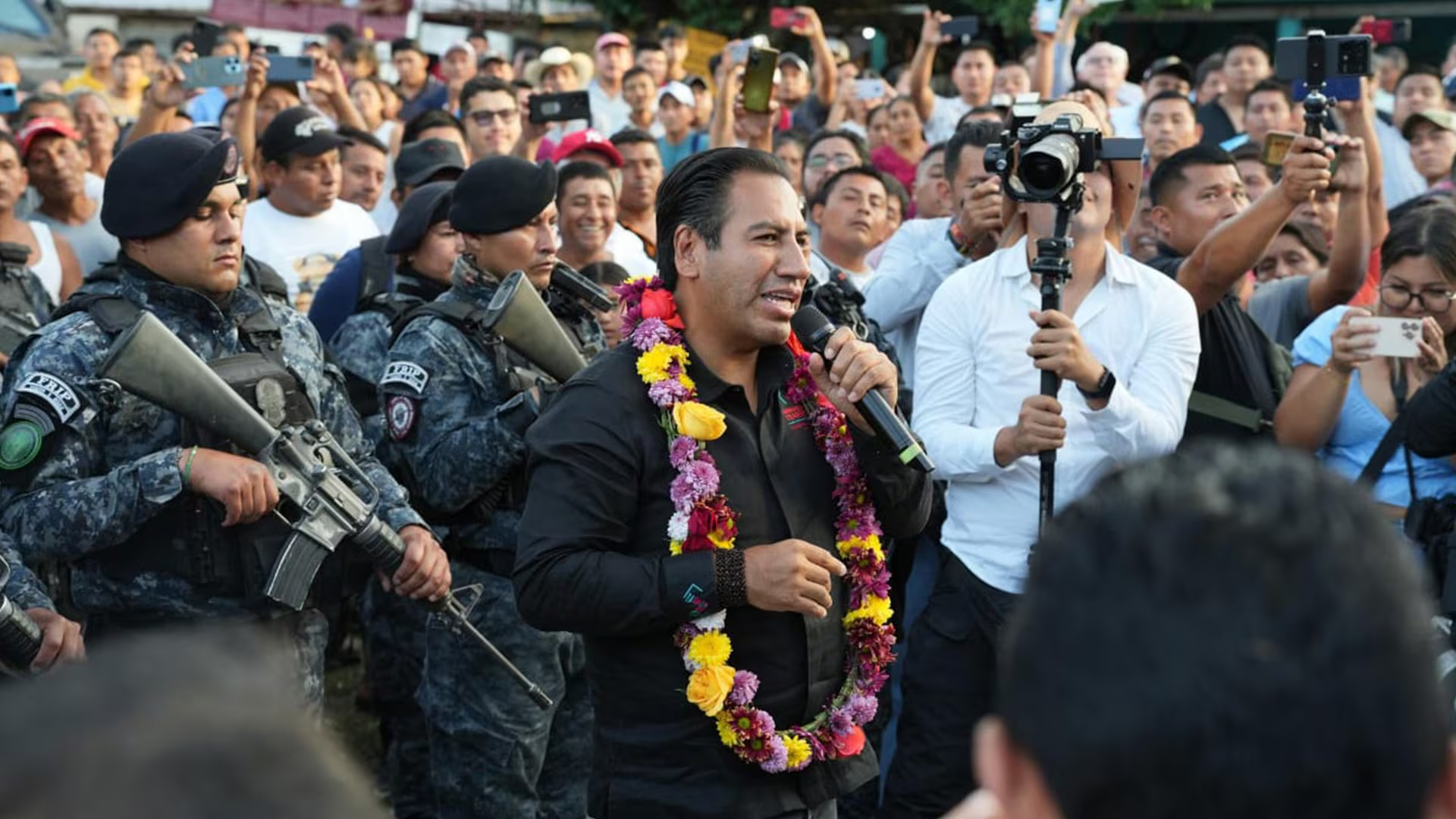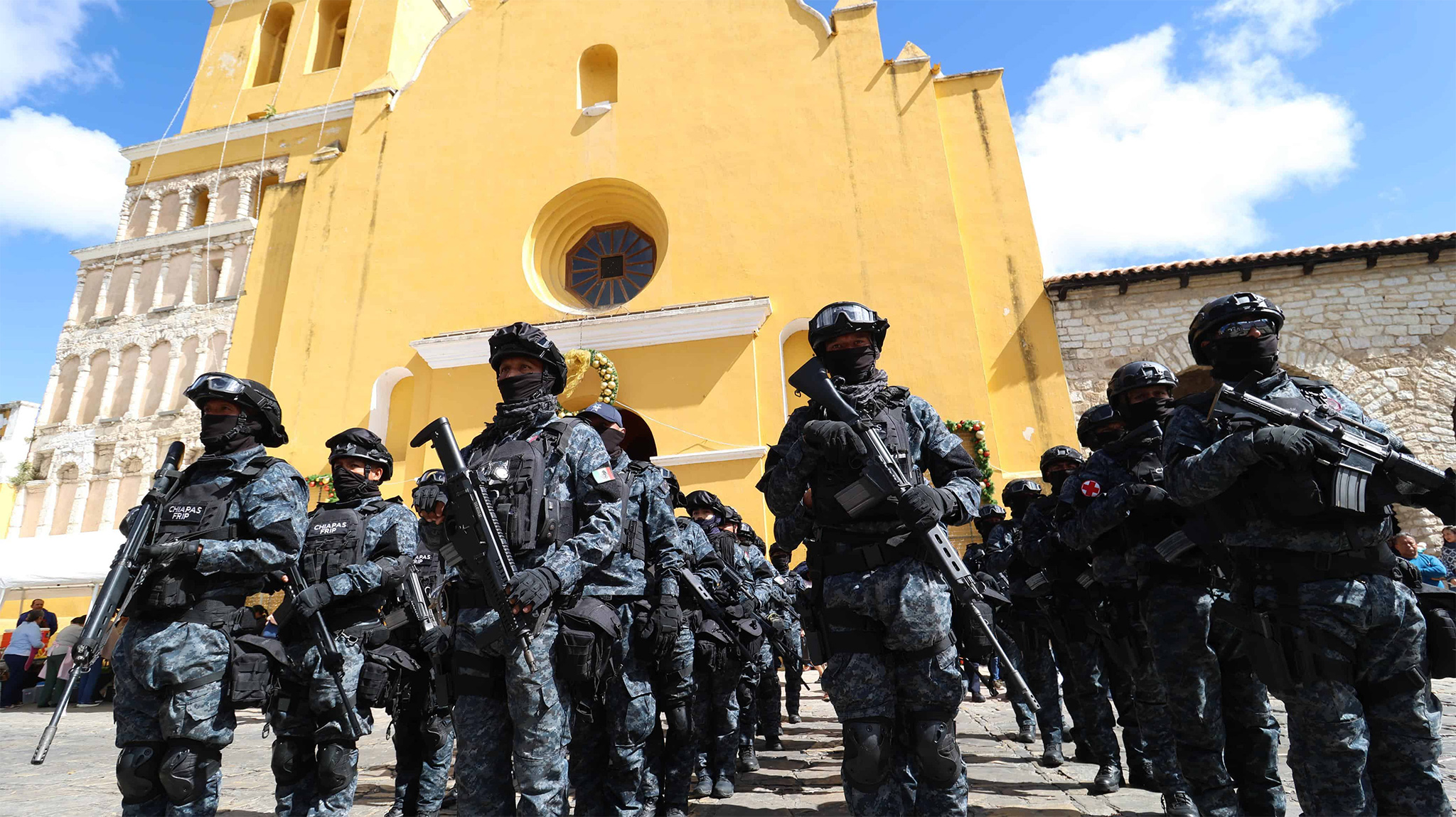Pakales Abuses Reported in Northern Chiapas
This article by Elio Henríquez originally appeared in the September 8, 2025 edition of La Jornada, Mexico’s premier left wing daily newspaper.
San Cristóbal de Las Casas, Chiapas. The Centro de Derechos Humanos de la Selva Negra, based in the municipality of Rayón, in the north of the state, stated that the elite group called Fuerza de Reacción Inmediata Pakal (FRIP), created in the current administration (by the Morena party member Eduardo Ramírez Aguilar), “has left in the communities where it has been active, invasion of their territories, raids on private properties without a court order and intimidation of the population,” among other abuses.
In a document released on the occasion of its second anniversary, the rights center stated that in the northern region and other parts of Chiapas, “there are still projects and megaprojects that threaten to continue the manipulation, prostitution, and destruction of our sister mother earth, such as highways, road expansions, tourist parks, etc., without truly taking the communities’ opinions into account.”
It stated that “in our Zoque region located in northern Chiapas, the triad of government, organized crime, and criminal enterprises has left the people silenced.
“The cancer of crime has reached the very core of the territories, and we are therefore facing the erosion of ancestral knowledge and the sacred spirituality of Indigenous peoples.”

Spiral of Armed Violence
The group celebrated its second anniversary with an event held yesterday in the municipality of Rayón, where the Fray Bartolomé de Las Casas Human Rights Center (Frayba) presented its report, Chiapas in the Spiral of Armed and Criminal Violence, first made public last March.
Following the presentation of the Frayba document, the Centro de Derechos Humanos de la Selva Negra released a manifesto stating that “in this state, where the highest level of government has proclaimed and continues to proclaim that human rights are no longer violated, the sacred right to life of our prophet, human rights defender, and Tsotsil priest, Marcelo Pérez, was violated.”
It added that his murder “is a clear example of the criminal conspiracy of the aforementioned triad, which Marcelo’s person, his voice, and his ministry were a hindrance to. And after his murder, they continue to tarnish him with dirty pronouncements and his mediocre sentence.”
“Marcelo’s annihilation achieves what his killers wanted: to temporarily dismantle the processes he supported, to silence the voices of those who cried out for justice, truth, and peace; to instill fear in all those who try to follow in his footsteps. It is no coincidence that intimidation, threats, and security incidents against human rights defenders have been on the rise.”
It added that “deep within the territories, the minimum infrastructure for mobility, electricity, drinking water, and even more so, efforts to achieve peace have been abandoned. A clear example is the road from Ixtacomitán to Chapultenango, an evacuation route that has been destroyed for years and where we face the constant uncertainty of a reaction from the Chichonal volcano.”
The Center asserted that under the new Morena administration, “nothing, not even the slightest effort, has been made in this region to put an end to the caciques, the lords and ladies, the families that have seized power and, for decades or even decades, have not relinquished it, and with this, human rights violations continue to accumulate.”
-
People’s Mañanera February 9
President Sheinbaum’s daily press conference, with comments on scholarships, return of mining concessions, PRIAN exposed, Bad Bunny Super Bowl, and aid to Cuba.
-
8 Million App Users, TV Soap Opera Ad… & the PAN Still Can’t Find New Members
In Mexico, where political parties are currently publicly financed, the right wing PAN has spent a staggering amount during its lackluster recruitment drive.
-
Mexico’s National Film Archives Workers Demand Dignity
“Our struggle is legitimate; we are not asking for privileges or luxuries, only better working conditions and job security. We also seek dialogue. This situation has become unsustainable.”




